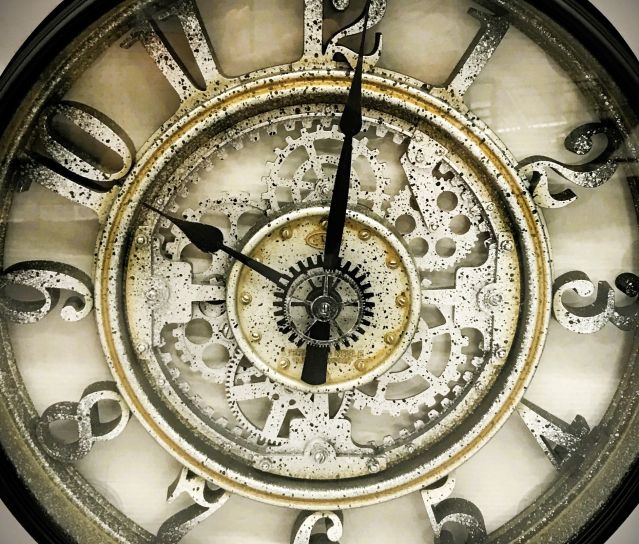Cognition
Why the Clock Counts with Critical Thinking
Timing matters when it comes to accepting extraordinary claims.
Posted September 24, 2023 Reviewed by Devon Frye
Key points
- Embracing a strong belief in the right thing at the wrong time is a deceptive victory.
- Strange possibilities should not be ruled out.
- The core power and most exciting aspect of science is not what we know now, but what we might learn next.
- The best we can do is strive to be correct according to the best evidence available now.

It may seem counterintuitive, but being correct in the long run is not the only consideration when it comes to extraordinary claims. It’s a detail often missed, but when one decides to accept or believe something matters—even if it eventually proves true.
This is important to recognize because embracing a strong belief in the right thing at the wrong time is a deceptive victory. It can encourage overconfidence in unreliable hunches and obscure flawed and dangerous thinking processes, all of which are likely to create problems throughout life.
Consider the factor of timing regarding UFOs. Anyone who “knows” today that some of them are extraterrestrial visitors has had their mind probed and abducted by an irrational belief because there is nothing close to credible confirmation for it. But what if aliens were to land on the rooftop of the United Nations building tomorrow and confess that they have been buzzing us for decades?
UFO believers would say, “told you so,” and deservedly so. But their prior position still would have been the result of extraordinarily poor thinking skills. And those skills won’t improve without a personal reckoning that includes acknowledging the significance of timing and a new commitment to thinking before believing.
It would be no different if Bigfoot were captured or a quirk of quantum physics proved the claims of homeopathy. Feelings of vindication aside, the unjustified embrace of an extremely dubious position that later turns out to be correct is not much more impressive than that of a broken clock being precisely accurate twice per day. A supervolcano might choke out civilization next year, but it wouldn’t mean the guy on a street corner yelling, “The end is near,” knew what he was talking about.
Some will argue that being proven right over time is enough, regardless of how unjustified the conclusion or belief once was. But this ignores the dangers of habitual sloppy thinking. If skepticism and quality of evidence are unimportant for one claim, then what is the standard for others? If one believes the Apollo Moon landings were faked, why not trust a chiropractor to treat a serious health issue? If reflexology is valid, why not Assyrian haruspicy, too? Where does it end? Sadly, of course, there is no end for some who seem to live almost entirely in a state of cognitive chaos.
To help premature believers, advocates of critical thinking might add the role of timing to their list of essential talking points. I consistently emphasize to others that the safer and more efficient way to mentally navigate the world is to consistently side with the best knowledge currently available—and be prepared to change course the moment new evidence demands it. I also make a point to concede that a given extraordinary and unlikely claim could be true, but quickly add that it doesn’t matter if currently there are no good reasons to believe it.
I understand that this burden of waiting for sufficient evidence can be inconvenient or uncomfortable, but it is crucial when it comes to important and unusual claims. There are exceptions, of course. Sometimes the stakes are high, there is legitimate urgency, and a hunch is all you have. For example, if I’m walking in a dark alley and someone in the shadows appears to be waving a knife and seems to be whispering something about my wallet, I’m running and not hanging around for scientific confirmation. In most cases, however, we have the luxury of waiting to see if good evidence ever arrives.
Drawing attention to this timing component of critical thinking is not a blanket rejection of fringe ideas. It is important to consider unlikely things and maintain appropriate humility before strange possibilities. The core power and most exciting aspect of science is not what we know now, but what we might learn next. A nagging intuition, compelling flash of insight, or gut feeling can be a fruitful starting point toward spectacular discovery.
But the hunch itself is not enough, and certainly should not be the endpoint. For example, my love of science fiction and the compressed version of the Drake Equation that lives in my head biases me with a strong inclination to think that we are not alone in a universe with this much time, space, matter, and energy. But until SETI holds the greatest press conference in history, it would be an appalling breach of reason if I were to take any stance other than “I don’t know.” The critical-thinking clock is clear on this. It’s too early to be sure.
An important technical point is that waiting for sufficient evidence is not an absolute denial of the claim. Neither is it a sign of being closed-minded, the standard cheap shot lobbed at critical thinkers. I suppose it can feel like a contradiction, but good thinking demands that we consider anything and doubt everything.
The late astronomer Carl Sagan mentioned this in his book The Demon Haunted World: “As I’ve tried to stress, at the heart of science is an essential balance between two seemingly contradictory attitudes—an openness to new ideas, no matter how bizarre or counterintuitive, and the most ruthlessly skeptical scrutiny of all ideas, old and new. This is how deep truths are winnowed from deep nonsense.”
I have learned from experience that openly noting the possibility of improbable things can aid communication between believer and skeptic. I readily admit that giant primates and interstellar visitors are not impossible, only that declaring them to be real phenomena right now is a problem. It demonstrates the same kind of muddled judgment that leads people into dangerous medical quackery, financial scams, predatory organizations, and destructive political loyalties.
The best we can do is strive to be correct according to the best evidence available now. Mind the clock and keep steering toward the best current version of reality. Take positions that are most reasonable today. We can always change our minds tomorrow if the aliens land and say hello.




